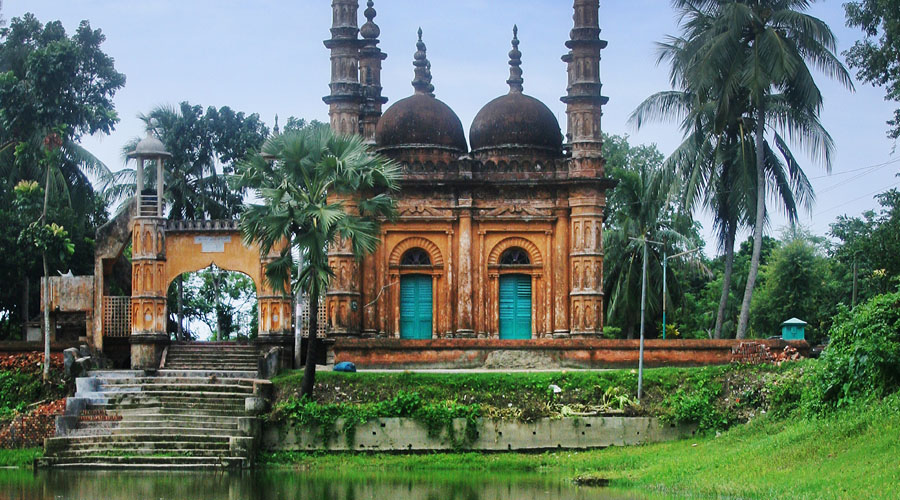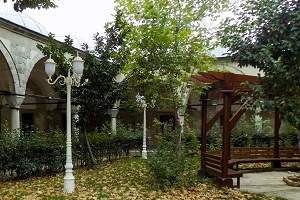Those who can’t manage to build eco-friendly features into their mosques take measures to make their buildings and congregation more eco-friendly

A number of mosques are now initiating projects such as gardens, bee-keeping, farm visits, nature walks, tree-planting schemes, solar panels and water and waste recycling. Some of these measures help keep down running costs, or even turn into enterprises that support themselves, while getting worshippers to work together and get to know one another better. More importantly it gives members of the congregation to get closer to Allah’s creation and give them an understanding of the irrevocable human connection with nature and how we should treat it.
Dealing with traffic and road congestion
- Steps to take in reducing traffic congestion and the pollution nightmare
- Surveying travel habits of congregation members.
- Promoting public transport: pin up a large bus map.
- Facilitating car-sharing: mark routes people take using wool and pins on map and a list of who uses which.
- Organize pick-up points.
- Bus to collect madrasa children and take them home – end the school run!
- Subsidised local and accessible parking
- Staggering mosque prayer times to avoid rush hour traffic
- Providing refreshments between Zuhr – the midday prayers – and Asr – the afternoon prayers – in winter
- Lifestyle seminars and ‘Walk to the Mosque’ days, where walking is actively encouraged. ‘There is a reward for every step you take towards the mosque’ (Hadith)
- Working with local authorities on traffic calming measures
- Instigating a one-way traffic flow system near mosque
- Ban single-occupant cars from mosque car parks
- Lectures by the Imam on waste
Recycling and reusing water
Determining that one individual can use up to nine gallons of water a day through the process of Wudhu five times a day, and accounting for the approximate daily visitors to the mosque, the winning team calculated that the local mosque they visited used 2,628,000 gallons a year.
By changing the course of the Wudhu pipelines to a separate collection tank, the team proposed that this still relatively clean water could be reused for watering the landscape around the mosque — resulting in saved water, energy, and money. Starting with a pilot project in one mosque, and following with a study of its results, the team plans to eventually reach out to other mosques in Abu Dhabi to implement the same technique.
Tree planting
Ethiopia’s 40,000 mosques will each, commit to planting 5,000 trees over the next three years. Some of them will become eco mosques, establishing woodlots in order to become self sufficient in their fuel supply. Each eco mosque will have its own tree-planting club running workshops and annual Tree Days as part of a wider effort to lead and educate the community in environmental action. In Uganda, the Muslim Green Top Tree planting project aims to distribute, plant and grow 2.5 million seedlings for fruit and agroforestry as part of its plan.
The world’s rainforests could completely vanish in a hundred years at the current rate of deforestation. The Schools4Trees programme was launched in Indonesia in 2010. School children planted nine different species of trees on a hectare of land in the Gunung Halimun-Salak National Park in West Java, Indonesia. IFEES aims to replicate this project worldwide as an educational tool involving children of all denominations giving them an understanding of their stake in their own futures.

Atik Valide Mosque
In the courtyard of the Atik Valide Mosque in the Üsküdar District of Istanbul, Turkey, the çinar trees frame the şardivan.
‘In the Ottoman heartland, venerable çinar trees grow in nearly every great mosque complex. Even after they die their stumps are left standing and carefully tended.’
Mosque gardens can also be community gardens.
Locally grown food and flowers save transport and energy and provide fresh, seasonal produce. Get your mosque community to start growing food or flowers together, then go home and grow some more!
Palmers Green Mosque (MCEC) in North London is turning theirs into a herb garden.
Waste recycling
Eat and drink but do not be wasteful – Allah does not love the wasters
Qur’an, The Ramparts (Al Araf) – 7:31
Most of Allah’s creations recycle themselves or are recycled by others, sometimes very slowly. Plastics are a big problem, and take hundreds of years to decompose, killing all sorts of creatures on the way. We can speed this up:
Recycle
This saves people from having to use up more natural resources – glass, metals, water, energy, trees, cloth – to make new things.
Most of us know about recycling clothes, whether within the family or via charities to other people who need them. Some charities, like Islamic Relief UK, can supply recycling bins for clothing to put outside your mosque.
Try asking your local council if they can provide your mosque with bins to recycle paper, cans, plastic bottles and food waste.
Surplus food can also be taken (speedily) for distribution to food banks or charities that feed homeless people or to local poor families if you know them. Vegetable food waste can be used to make compost.
Reduce
Better still, don’t use disposable plastic bottles and containers, cups and plates or metal cans at all, and take all your waste home to be recycled.
